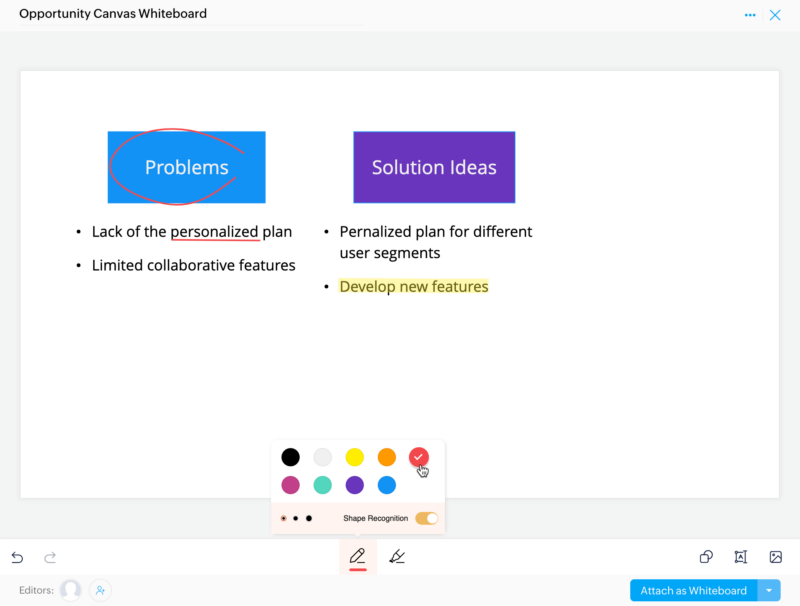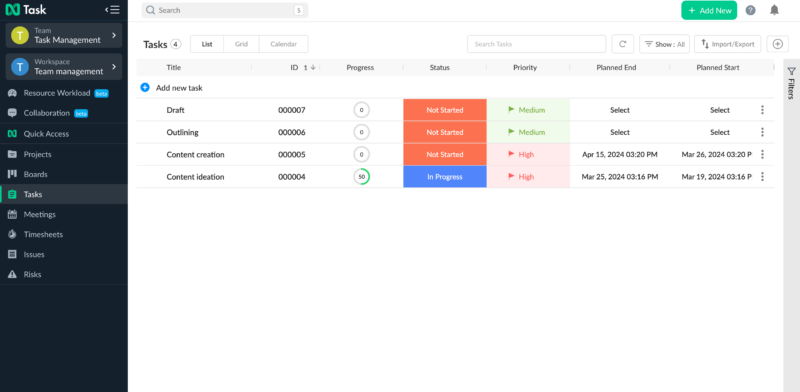A project management office (PMO) and a project manager play key roles in successful project delivery. A project manager is responsible for project execution, while a PMO oversees organization-wide project management practices. Keys to success include knowing the PMO vs project manager dynamic and using the best project management software to manage projects.
In this article, we’ll examine the differences between PMO managers and project managers, including their responsibilities, salaries and required skills. We’ll also explore the similarities between these two roles and provide insights to help you advance your project management career.
What Does PMO Mean in Project Management?
A project management office (PMO) is a group or department that defines and maintains project management standards for the entire organization. It also provides guidance and best practices, monitors project progress and measures performance. This is to ensure the project aligns with the organization’s strategic objectives and ensure successful project delivery.
According to Wellingtone’s State of Project Management Survey 2021, 82% of organizations have at least one PMO. The most common activities PMOs undertake are project status reporting, managing the project list and portfolio, maintaining project management methodology and document templates, and facilitating project approval processes and project assurance.1
Types of Jobs in a PMO
The job types in a PMO range from entry-level to higher-level positions.
1. Project Administrator
Project administrators provide administrative support to project managers, such as scheduling meetings, updating project documentation and tracking project progress. The average salary for a project administrator in the U.S. is around $63,122 per year, according to data from Salary.com.2
2. PMO Analyst
PMO analysts are responsible for analyzing project data, identifying trends and providing insights to improve project performance. The average salary for a PMO analyst in the U.S. is approximately $136,127 per year, according to data from ZipRecruiter.3
3. Project Portfolio Manager
Project portfolio managers oversee the organization’s projects and portfolio management, ensuring alignment with business goals and resource allocation. The average salary for a project portfolio manager in the U.S. is $132,211 per year, according to Glassdoor.4
4. PMO Director
A PMO director is a senior leadership role in a PMO and is responsible for setting the PMO’s strategic planning. This role oversees the PMO team, develops PMO processes and provides guidance to project managers. The average salary for a PMO director in the U.S. is $146,778 per year, according to ZipRecruiter.5
Key Differences Between PMO vs Project Manager
Though both PMO leaders and project managers have a shared goal of successfully delivering projects, they have distinct roles and responsibilities. Below, we will examine the key differences between these two positions in various business aspects.
PMO vs Project Manager: Roles and Responsibilities
Here’s a comparison of the roles and responsibilities of a PMO and a project manager.
| PMO Roles and Responsibilities | Project Manager Roles and Responsibilities |
|---|---|
| Define and implement project management processes, standards and methodologies at the organization level. | Plan, execute and monitor individual projects to ensure project success. |
| Provide training, mentoring and support to project managers and project teams. | Lead a project management team, assign tasks and manage resources. |
| Monitor and report on the project portfolio performance. | Ensure project deliverables meet requirements and stakeholder expectations. |
The PMO and project managers operate at different levels within an organization. The PMO manages multiple projects on a strategic level, ensuring they align with business objectives. On the other hand, project managers are responsible for the day-to-day operations of assigned projects throughout the project’s life cycle.
Another key difference is the scope of responsibilities. The PMO establishes and maintains project management standards, supports project managers and reports on project portfolio performance. In contrast, project managers are directly responsible for project success. If you need software to help you manage projects, check out our monday.com review.

helps project managers and PMOs optimize project resources.
PMO vs Project Manager: Skills
PMOs and project managers require a diverse set of project management skills to excel in their roles. Here’s a comparison of the essential skills required.
| PMO Skills | Project Manager Skills |
|---|---|
| Strategic planning and alignment with corporate strategy | Strong leadership and team management abilities |
| Knowledge of project management methodologies and best practices | Manage project scope, project schedule, project risks and resource allocation effectively |
| Change management and training facilitation | Technical knowledge in a specific domain |
PMOs require broader, strategic project management expertise, as they set organizational direction and business strategy. PMO professionals analyze project data, identify trends and provide strategic guidance to project teams and key stakeholders. They also need change management skills to effectively implement project management practices in the organization.
In contrast, a project manager’s skills center around project planning, scheduling, resource allocation and risk management. They require strong leadership, communication and specific technical knowledge to ensure project delivery is within scope, on time and within budget. Read our ClickUp review if your project team needs comprehensive project management software.
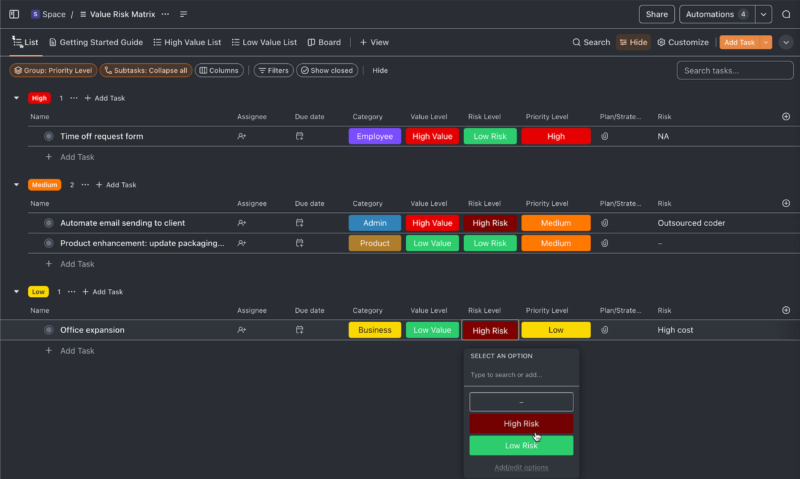
PMO vs Project Manager Salary
The salaries for PMO and project manager roles can vary based on factors such as experience, industry, location and organizational size. Here’s a general comparison of the salary ranges in the U.S.
| PMO Manager Salary | Project Manager Salary |
|---|---|
| $75,000-$150,000 per year | $128,063-$160,185 per year |
According to Salary.com, the average salary for a PMO manager in the U.S. is around $146,930 per year, while the average salary for a project manager is approximately $143,35 per year.6,7
Similarities in a Project Manager vs PMO Role
Despite operating at different levels, the PMO and project manager both manage projects simultaneously. They collaborate to develop project plans, identify project metrics and measurements, monitor progress and ensure successful project execution. Platforms like monday.com and Zoho Projects offer customizable dashboards for tracking project metrics.
Additionally, project managers engage with project stakeholders to gather requirements, communicate project updates and address risks and issues. Similarly, the PMO interacts with stakeholders to gather feedback, align multiple projects with organizational goals and provide necessary resources and support to project managers.
In terms of project management knowledge, both roles require a deep understanding of project management characteristics, best practices and processes. They also need strong communication, problem-solving, organizational and time management skills.
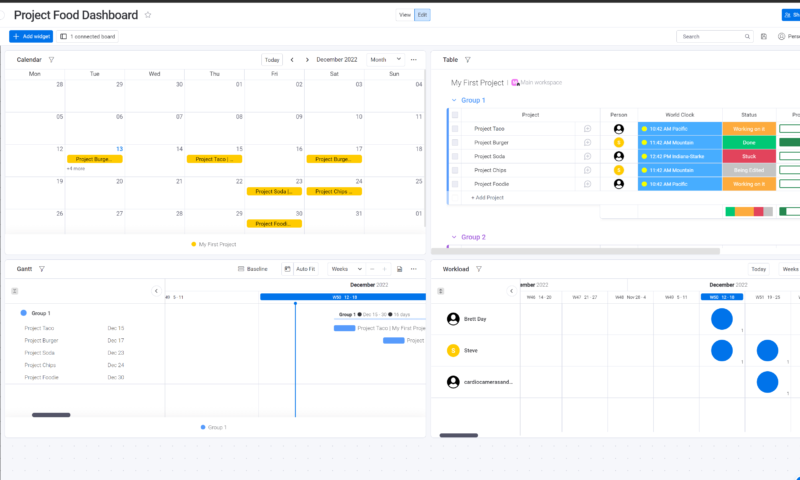
and project performance for each project plan.
Reasons to Work in a PMO
A career in a PMO can be a great choice for professionals looking to grow their project management skills and make a meaningful impact within a successful organization. Here are four reasons why you should consider working in a PMO.
Requirements to Work in a PMO
PMO headcounts are expected to increase by 38% in the future. Moreover, the perceived value of PMOs will increase by 54%.1 If you want to work in a PMO, there are several requirements you must meet.
PMO Certifications
Obtaining professional certifications can boost your credibility, demonstrate your expertise as a PMO leader and possibly lead to a higher salary. Below are some recommended certifications for PMO roles. Check out our best project management certification roundup for more options.
- Certified PMO Professional: The Global Skills Development Council (GSDC) offers this globally recognized certification. It validates an individual’s expertise in managing and leading PMOs, and covers PMO skills and knowledge, such as project planning, portfolio management and stakeholder engagement. The cost is $299.
- PMO Certified Practitioner (PMO-CP): Provided by the PMO Global Alliance (PMOGA), the PMO-CP is designed for PMO professionals with different levels of experience or newcomers looking to expand their expertise with innovative and advanced practices. It costs $600.
- Certified Baseline PMO Consultant (CB-PMO): The PMO Global Institute offers this certification program. It validates advanced knowledge of how PMO projects are implemented in practical, complex environments to deliver strategic project initiatives. The exam fee is $399.
- Project Management Professional (PMP): The PMP is a widely recognized certification from the Project Management Institute (PMI). Though not PMO-specific, the PMP is relevant for project managers working with PMOs. It validates project management skills and knowledge. The exam fee is $425 for PMI members and $595 for non-members.
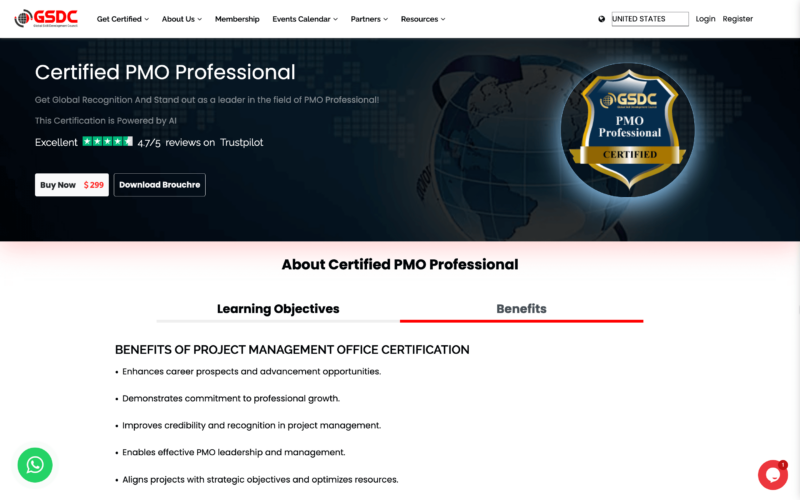
expertise in establishing and managing PMOs.
Final Thoughts
PMOs and project managers are like the dynamic duo of project success. PMOs set the strategic direction and provide the necessary resources to drive projects. Project managers, on the other hand, execute the plans and ensure each project is successful. These two roles form a powerful partnership that can lead to successful project outcomes.
Roles in a PMO are evolving as organizations move away from traditional models. They require not only project management expertise but also strong leadership skills and a greater focus on agility and adaptability. If you want to succeed in a PMO role, certain certifications, like the PMO-CP, can provide you with the necessary knowledge and skills to adapt to these changes.
Do you have experience working in a PMO or as a project manager? What insights or advice can you offer to those considering these roles? What challenges or rewards have you encountered on your journey? Share your thoughts and experiences below. Thank you for reading.
FAQ: PMO and Project Manager Difference
-
PMO and project manager roles operate at different levels within an organization. PMO leaders function at a strategic level, overseeing project management practices, project portfolio management, standards and processes. Project managers are focused on the execution and delivery of individual projects, as well as day-to-day project activities.
-
Yes, a PMO manager can transition to a project manager role with a solid foundation in project management practices. However, PMO roles may not always involve direct project execution, so additional training or hands-on project management experience is necessary for a successful transition.
-
The PMP and PMO certifications have distinct purposes. The PMP certification focuses on enhancing project management skills and leading projects effectively. On the other hand, the PMO certification builds expertise in establishing and managing PMOs, overseeing project management processes and managing project portfolios.
-
The reporting structure depends on the organization’s structure and the type of PMO. In some organizations, project managers report directly to a directive PMO. In others, project managers may report to functional managers or department heads, while PMO leaders provide oversight, guidance and support.
{“@context”:”https:\/\/schema.org”,”@type”:”FAQPage”,”mainEntity”:[{“@type”:”Question”,”name”:”Is PMO Higher Than Project Manager?”,”acceptedAnswer”:{“@type”:”Answer”,”text”:”
PMO and project manager roles operate at different levels within an organization. PMO leaders function at a strategic level, overseeing project management practices, project portfolio management, standards and processes. Project managers are focused on the execution and delivery of individual projects, as well as day-to-day project activities.\n”}},{“@type”:”Question”,”name”:”Can a PMO Become a Project Manager?”,”acceptedAnswer”:{“@type”:”Answer”,”text”:”
Yes, a PMO manager can transition to a project manager role with a solid foundation in project management practices. However, PMO roles may not always involve direct project execution, so additional training or hands-on project management experience is necessary for a successful transition.\n”}},{“@type”:”Question”,”name”:”Which Is Better: PMP or PMO?”,”acceptedAnswer”:{“@type”:”Answer”,”text”:”
The PMP and PMO certifications have distinct purposes. The PMP certification focuses on enhancing project management skills and leading projects effectively. On the other hand, the PMO certification builds expertise in establishing and managing PMOs, overseeing project management processes and managing project portfolios.\n”}},{“@type”:”Question”,”name”:”Does the Project Manager Report to the PMO?”,”acceptedAnswer”:{“@type”:”Answer”,”text”:”
The reporting structure depends on the organization’s structure and the type of PMO. In some organizations, project managers report directly to a directive PMO. In others, project managers may report to functional managers or department heads, while PMO leaders provide oversight, guidance and support.\n”}}]}
Sources:
- The State of Project Management Annual Report — Wellingtone
- Project Administrator I Salary | Salary.com
- Salary: Pmo Analyst in US (June, 2024) — Ziprecruiter
- Salary: Project Portfolio Manager in United States 2024 | Glassdoor
- Salary: Pmo Director (June, 2024) United States
- PMO Manager Salary | Salary.com
- Project Management Manager Salary | Salary.com
- The Evolution of PMOs | PMI
The post PMO vs Project Manager: Salary, Responsibilities and Differences Compared in 2024 appeared first on Cloudwards.

